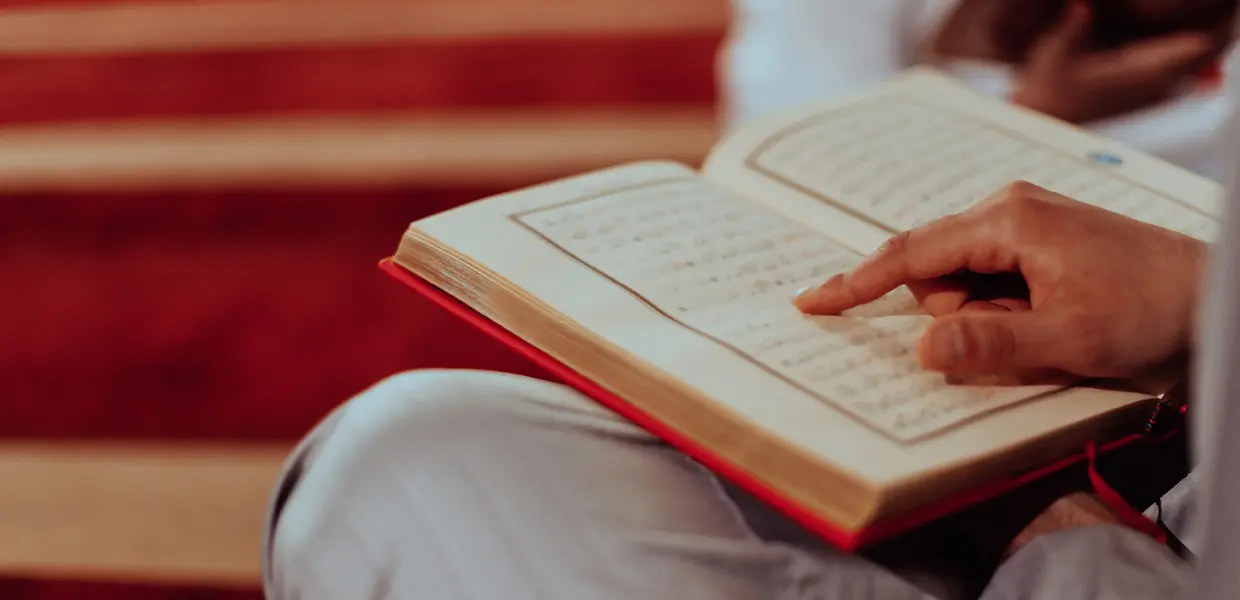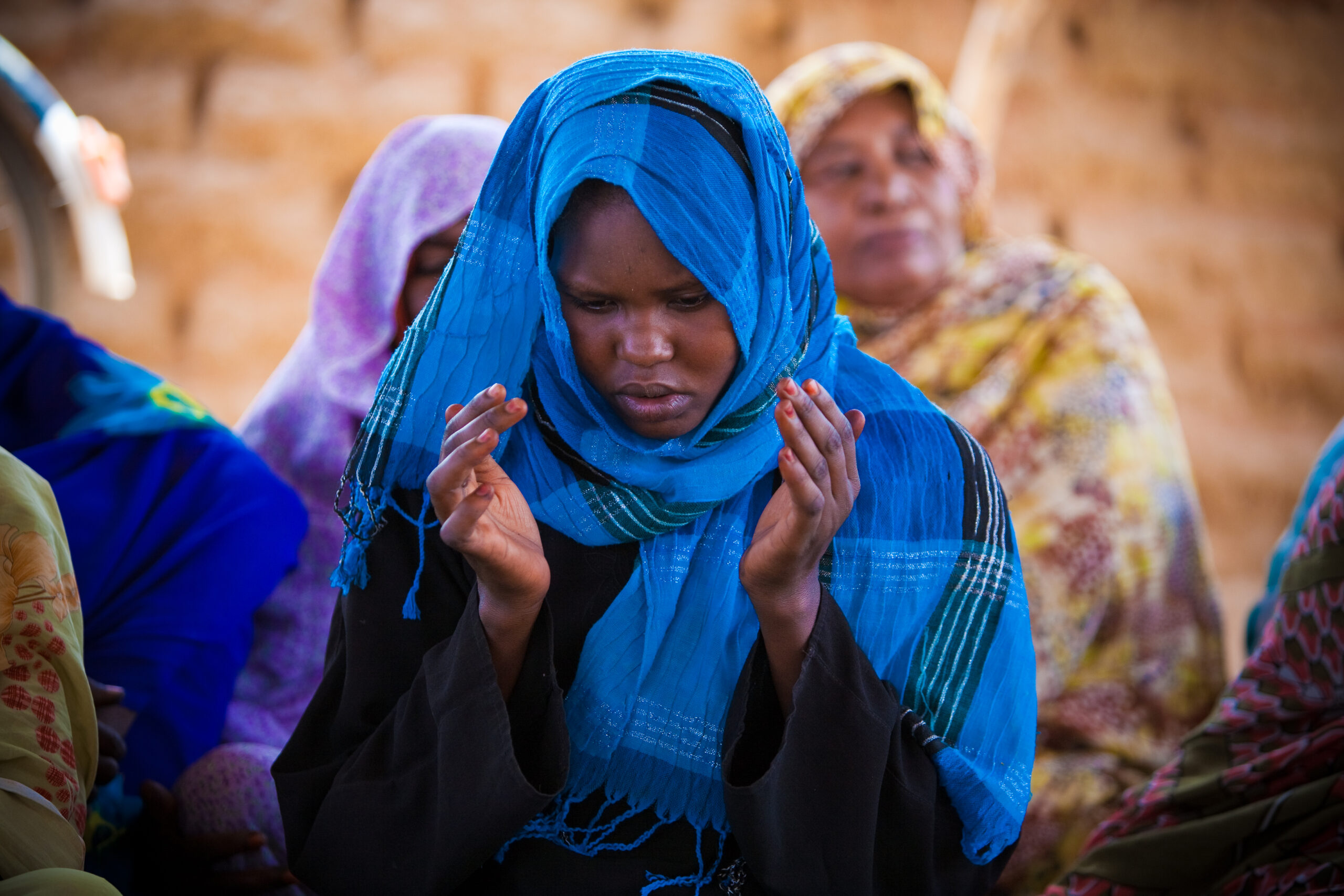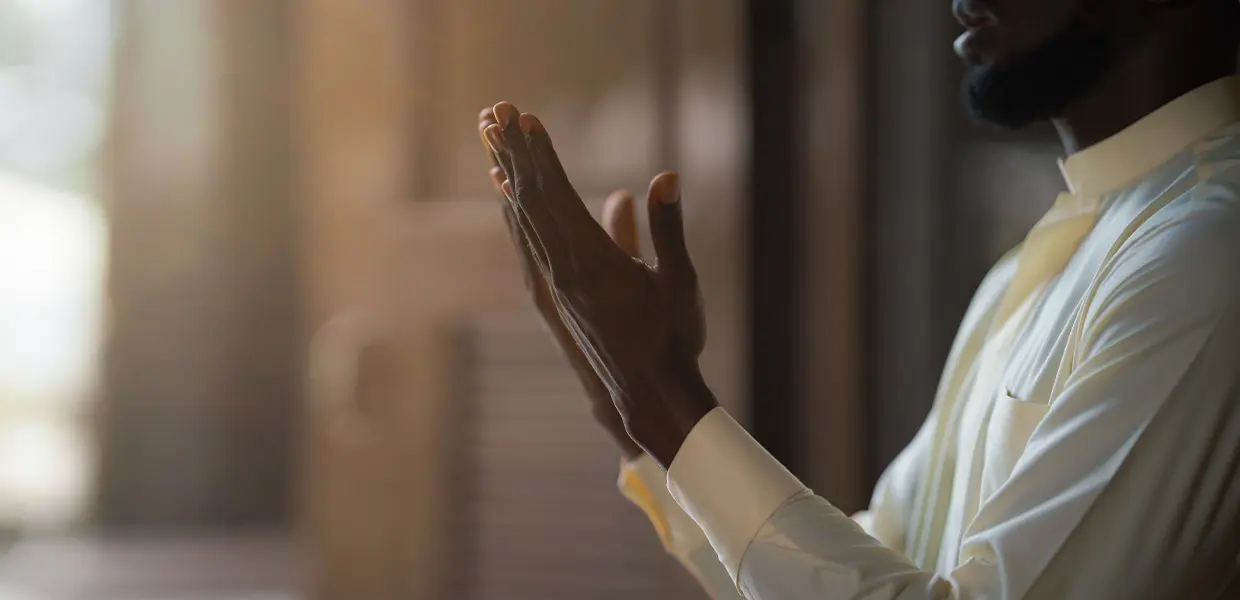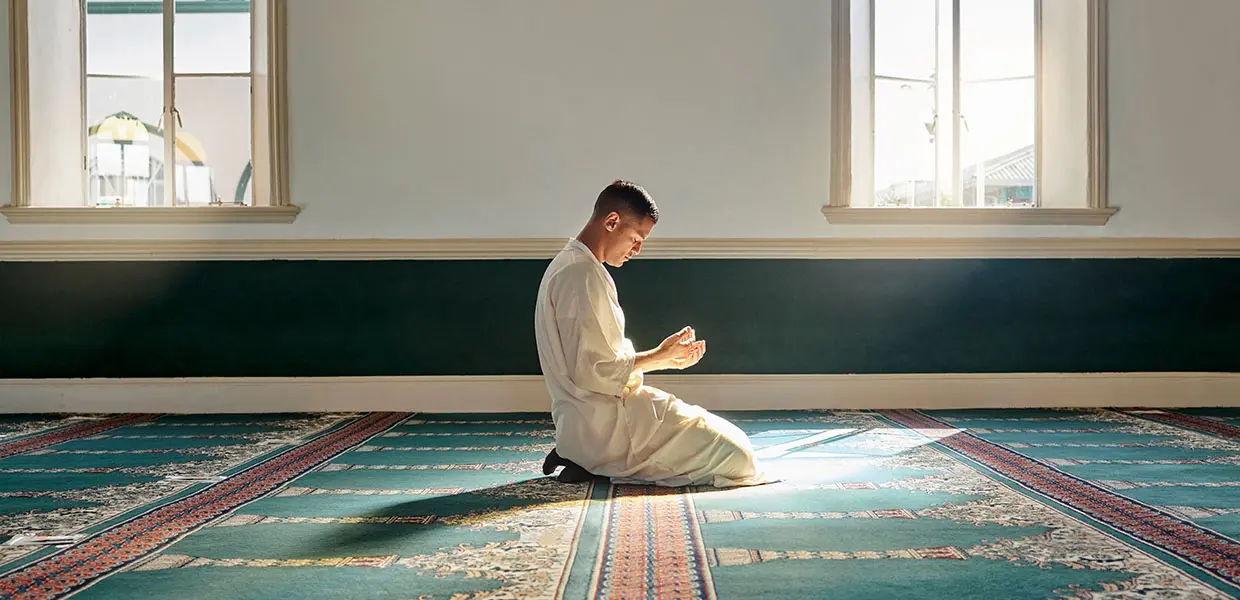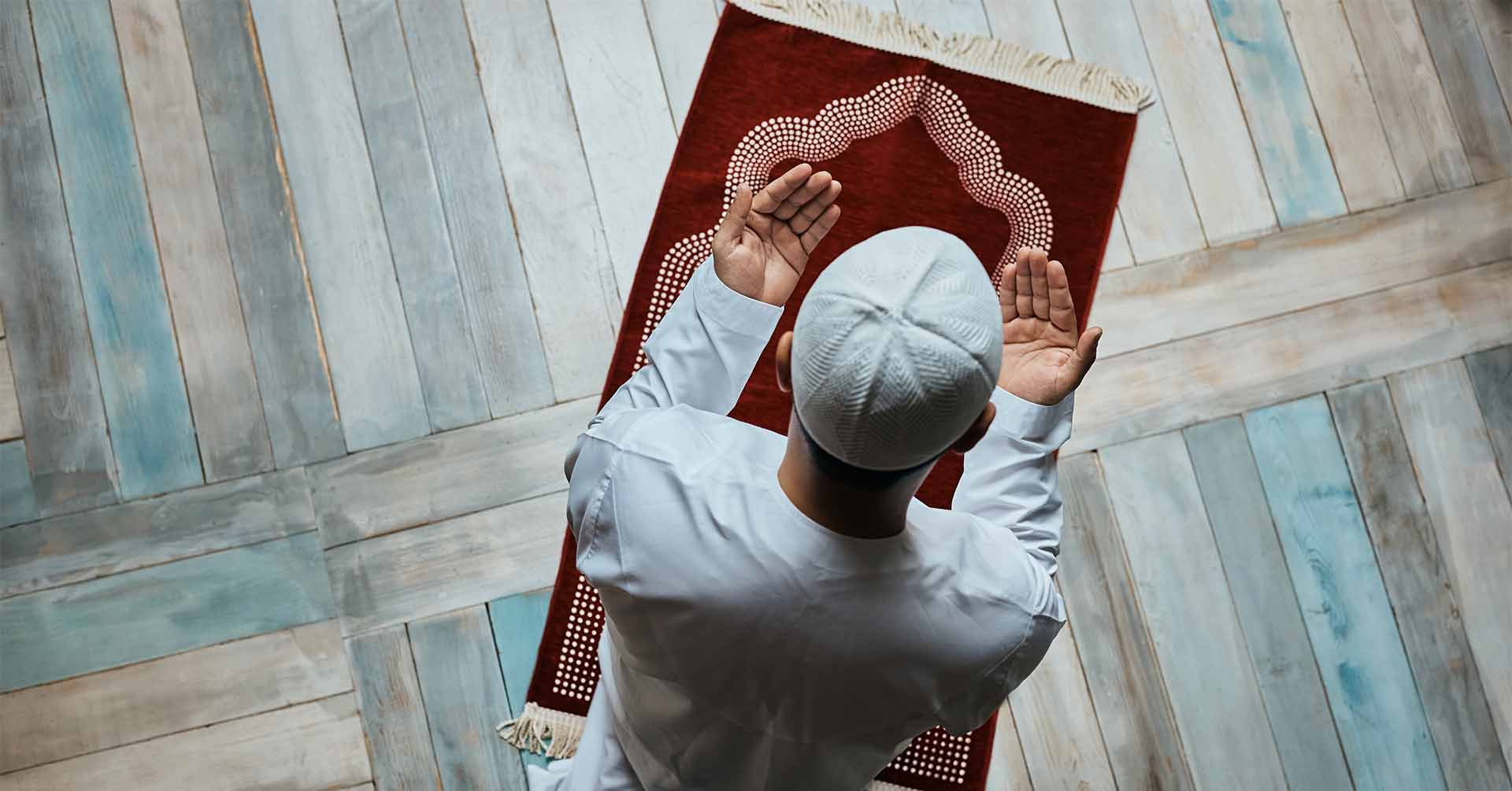
03.24.25
What is Du’a?
Du’a (supplication) is a tool for Muslims to establish a profound connection and engage in direct communication with Allah (SWT). Du’a holds immense power – it serves as a means to seek His (SWT)’s guidance, assistance, and mercy.
Du’a involves invoking and calling upon Allah, showing our humility, and acknowledging our reliance on His boundless power and wisdom. Muslims use du’a during moments of joy, sorrow, hardship, or contentment, being fully aware that Allah is the ultimate source of solace and support.
Why do Muslims make Du’a?
Du’a is like having a personal conversation with our Creator. It allows us to express our thoughts and feelings directly to Allah. Just as we would regularly communicate with someone we love, du’a is our form of communication with our creator. We can use any language or words to ask for blessings and protection in this life and the Hereafter.
When someone we love continuously make requests from us, we may become distant from them. However Allah Almighty loves when we turn to Him and our earnest requests and supplications are accepted.
Du’a is a chance to share our deepest thoughts and seek Allah’s favour not only for ourselves but also for others, including our loved ones, those in need, and humanity.
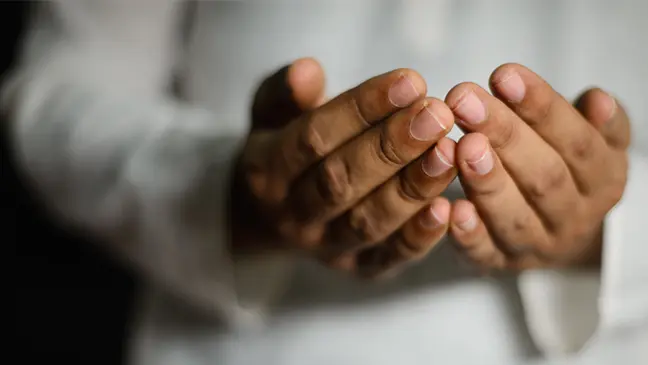
Du’a is more than just communication or routine practice. It is considered the essence of worship because it shows that we believe only Allah has the power to grant or deny our wishes, desires, and ambitions. When we make du’a, we acknowledge our dependence on Allah and recognise His ultimate authority and control.
Allah (SWT) loves to hear His servant’s voice. He is constantly attentive to our prayers and supplications. Formal acts of worship, such as Salah, are not the only exclusive means of communicating with our Lord. Du’a has no timeframe, limit, or conditions- we are never disconnected or isolated from Him.
Ibn ʿAta’illah (may Allah be pleased with him) beautifully expressed that whenever Allah grants you the ability to speak and make a request, understand that He desires to bestow something upon you. Implying that wouldn’t have permitted you to make that duʿa (supplication) unless He intended to answer it. The greatest blessing of that supplication is that Allah loves to hear it, and as a result, you draw closer to Him.
Why is Du’a important?
“And when my servants ask you about Me, then tell them I am near. I answer the call of every believer when they call upon me so let them also answer my call and believe in me so they may find rightful guidance.”
Quran | Surah Al-Baqarah | 2:186
When we invoke Allah, He is near to us. This is the first gift. The second gift is that He answers our prayers in a manner that is suitable for us, in a way that benefits our worldly life and Hereafter, without putting us in harm’s way due to our limited understanding.
We can see how Merciful and Loving our Lord is, just by calling upon Him. Du’a is considered “the weapon of a believer” and it has the power to change fate with His help. Prophet (ﷺ) said:
“Dua diverts fate and good deeds lengthen the age”
Hadith | Tirimdhi
When to make du’a
In Islam, there are no specific time restrictions for making general dua. Muslims are encouraged to make supplications to Allah (SWT) at any time.
However, certain times are considered more auspicious for supplication. These times are mentioned in the teachings of Islam and are believed to hold special significance. Here are some of the optimal times for making dua:
The Night of ‘Qadr’ (Decree)
Abu Hurairah (RA) narrated that Allah’s Messenger (ﷺ) said: “In the last third of every night our Rabb (Cherisher and Sustainer) (Allah (SWT)) descends to the lowermost heaven and says; ‘Who is calling Me, so that I may answer him? Who is asking Me so that may I grant him? Who is seeking forgiveness from Me so that I may forgive him?.’” [Sahih al-Bukhari, Hadith Qudsi]
Late at night
When people are sleeping and busy with worldly pleasures Allah (SWT) gives the believers an opportunity, or an answer hour if they can fight sleep and invoke Allah (SWT) for whatever they need. The Prophet (ﷺ) said: ‘There is at night an hour, no Muslim happens to be asking Allah any matter of this world or the Hereafter, except that he will be given it, and this (occurs) every night.” [Hadith | Muslim]
Abu Hurairah (RA) narrated that Allah’s Messenger (ﷺ) said: ‘In the last third of every night our Rabb (Cherisher and Sustainer) (Allah (SWT)) descends to the lowermost heaven and says; “Who is calling Me, so that I may answer him? Who is asking Me so that may I grant him? Who is seeking forgiveness from Me so that I may forgive him?.”‘ [Hadith| Bukhari]
Whilst travelling
The Messenger of Allah (ﷺ) said; Three supplications will not be rejected (by Allah (SWT)), the supplication of the parent for his child, the supplication of the one who is fasting, and the supplication of the traveller. [Hadith | Tirmidhi]
A Muslim supplicating for a brother in their absence
The Prophet (ﷺ) said: “There is no believing servant who supplicates for his brother in his absence where the angels do not say, ‘the same be for you’” [Hadith | Muslim]
On the Day of Arafat
The Messenger of Allah (ﷺ) said: “The best supplication is the supplication on the day of Arafat.” [Hadith | Tirmidhi and Malik]
Dua after sending salawat (salutations) on the Prophet (ﷺ)
“When anyone of you makes du’a, let him start by glorifying his Lord and praising Him, then let him send blessings upon the Prophet (ﷺ), then let him pray for whatever he wants.” (Hadith | Tirmidhi).
An Hour On Friday
Narrated Abu Hurairah (RA): Allah’s Messenger (ﷺ) talked about Friday and said: “There is an hour on Friday and if a Muslim gets it whilst praying and asks something from Allah (SWT), then Allah (SWT) will definitely meet his demand.” And he (the Prophet (ﷺ) pointed out the shortness of that particular time with his hands. [Hadith | Bukhari].
While Drinking Zamzam Water
Jaber (RA) narrated that Allah’s Messenger (ﷺ) said: “Zamzam water is for what it is drunk for.” [Hadith | Ahmad]. This means that when you drink Zamzam water you may ask Allah (SWT) for anything you’d like to gain or benefit from this water such as healing from illness, etc.
First Ten days of Dhul-Hijjah
The Prophet (ﷺ) said: “There are no days during which good deeds are more beloved to Allah than during these ten days.” [Hadith | Bukhari]
Etiquettes of Du’a
Scholars advise adhering to certain practices when making Du’a. These etiquettes encompass:
- Displaying sincerity, humility, and submission before Allah.
- Engaging in heartfelt supplication with unwavering focus.
- Facing towards the Qiblah (the direction of the Kaaba in Makkah).
- Observing ritual purification (wudhu) before making the dua.
- Extending one’s hands towards Allah as a gesture of supplication.
- Commencing the du’a with words of praise for Allah and sending blessings upon the Prophet Muhammad(ﷺ).
- Employing a variety of Allah’s Beautiful names to invoke Him during the du’a.
- Seeking repentance and forgiveness for sins and wrongdoings.
- Maintaining unwavering faith that Allah listens to and accepts the du’a.
- Concluding the du’a by offering salutations to the Prophet (ﷺ).
See more on the etiquettes of making du’a here.
Important du’as in Islam
Islam is a comprehensive, and complete way of life.It recognises the importance of maintaining a deep connection with Allah in every situation and at every moment. As a testament to this, we have special dua’s (supplications) for nearly every occasion, ensuring that we seek Allah’s blessings, protection, and guidance.
From the simple act of wearing new clothes to the profound experience of losing a loved one, Islam offers specific dua’s to be recited, reflecting the comprehensive nature of our relationship with Allah.
Here are some examples of important Du’as:
Du’a when waking up
Alhamdu lillaahil-lathee ‘ahyaanaa ba’da maa ‘amaatanaa wa’ilayhin-nushoor.
الْحَمْدُ للهِ الَّذِي أَحْيَانَا بَعْدَ مَا أَمَاتَنَا وَإِلَيْهِ النُّشُورُ
Praise is to Allah Who gives us life after He has caused us to die and to Him is the return.
Du’a after finishing ablution
Ash-hadu ‘an laa ‘ilaaha ‘illallaahu wahdahu laa shareeka lahu wa ‘ash-hadu ‘anna Muhammadan ‘abduh’;u wa Rasooluhu.
أَشْهَدُ أَنْ لَا إِلَهَ إلَّا اللهُ وَحْدَهُ لَا شَرِيكَ لَهُ، وَأَشْهَدُ أَنَّ مُحَمَّداً عَبْدُهُ وَرَسُولُهُ
I bear witness that none has the right to be worshipped but Allah alone, Who has no partner; and I bear witness that Muhammad is His slave and His Messenger.
Du’a when getting dressed
Alhamdu lillaahil-lathee kasaanee haathaa (aththawba) wa razaqaneehi min ghayri hawlim-minnee wa laa quwwatin.
الْحَمْدُ للهِ الَّذِي كَسَانِي هَذَا (الثَّوبَ) وَرَزَقَنِيهِ مِنْ غَيْرِ حَوْلٍ مِنِّي وَلَا قُوَّةٍ
I bear witness that none has the right to be worshipped but Allah alone, Who has no partner; and I bear witness that Muhammad is His slave and His Messenger.
Du’a when it rains
Allaahumma sayyiban naafi’an
اللّهُمَّ صَيِّـباً نافِـعاً
O Allah, (bring) beneficial rain clouds.
Du’a for Anger
A’oothu billaahi minash-Shaytaanir-rajeem
أعوذُ بِٱللَّهِ مِنَ ٱلشَّيۡطَٰنِ ٱلرَّجِيمِ
I seek refuge in Allah from Satan the outcast from that which You provide for us
Du’a for Worry and Grief
Allaahumma ‘innee ‘abduka, ibnu ‘abdika, ibnu ‘amatika, naasiyatee biyadika, maadhin fiyya hukmuka, ‘adlun fiyya qadhaa’uka, ‘as’aluka bikulli ismin huwa laka, sammayta bihi nafsaka, ‘aw ‘anzaltahu fee kitaabika, ‘aw ‘allamtahu ‘ahadan min khalqika, ‘awista’tharta bihi fee ‘ilmil-ghaybi ‘indaka, ‘an taj’alal-Qur’aana rabee’a qalbee, wa noora sadree, wa jalaa’a huznee, wa thahaaba hammee.
للّهُـمَّ إِنِّي عَبْـدُكَ ابْنُ عَبْـدِكَ ابْنُ أَمَتِـكَ نَاصِيَتِي بِيَـدِكَ، مَاضٍ فِيَّ حُكْمُكَ، عَدْلٌ فِيَّ قَضَاؤكَ أَسْأَلُـكَ بِكُلِّ اسْمٍ هُوَ لَكَ سَمَّـيْتَ بِهِ نَفْسَكَ أِوْ أَنْزَلْتَـهُ فِي كِتَابِكَ، أَوْ عَلَّمْـتَهُ أَحَداً مِنْ خَلْقِـكَ أَوِ اسْتَـأْثَرْتَ بِهِ فِي عِلْمِ الغَيْـبِ عِنْـدَكَ أَنْ تَجْـعَلَ القُرْآنَ رَبِيـعَ قَلْبِـي، وَنورَ صَـدْرِي وجَلَاءَ حُـزْنِي وذَهَابَ هَمِّـي
O Allah, I am Your slave and the son of Your male slave and the son of Your female slave . My forehead is in Your Hand (i.e. you have control over me) . Your Judgment upon me is assured and Your Decree concerning me is just. I ask You by every Name that You have named Yourself with, revealed in Your Book , taught any one of Your creation or kept unto Yourself in the knowledge of the unseen that is with You , to make the Qur’an the spring of my heart, and the light of my chest, the banisher of my sadness and the reliever of my distress.
May Allah make us amongst His Slaves whose prayers and supplications are accepted. Ameen!

